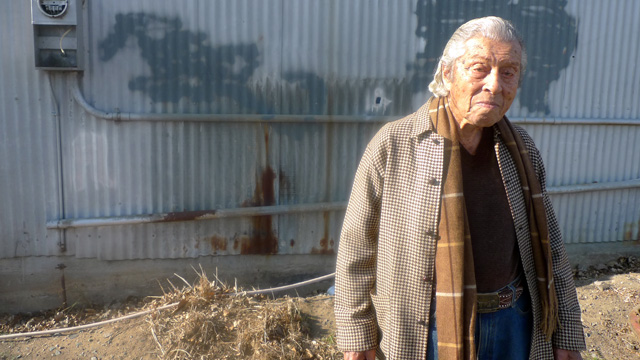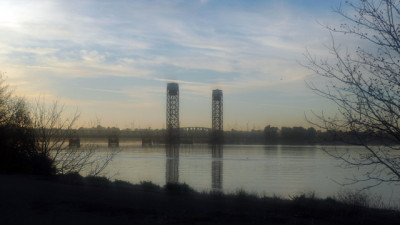Farmers in The Delta: Deep Connections to Rich Agricultural History

Farmers in The Delta: Deep Connections to Rich Agricultural History
Draw an imaginary line from the San Francisco Bay Area east to Stockton. Pivot your pencil and draw another line north up I-5 to Sacramento, and then west back to the Bay Area again. That triangle -- filled with a puzzle of waterways and islands -- makes up the California Delta.
The Sacramento and San Joaquin rivers come together here. With a system of channels and gates and pumps built over multiple decades, it’s become the center of California’s water distribution system. Policymakers, interest groups and residents have been fighting for decades over how to manage the area, with the latest controversy surrounding Gov. Jerry Brown’s proposal to build two huge tunnels underneath the Delta.
While California’s record drought has refocused attention on the Delta, little media attention is paid to the people who actually live and work there, including people deeply connected to the region’s rich agricultural history.
Daniel Wilson runs a pear orchard minutes from the Sacramento River. His family has farmed here on Andrus Island for generations.
Wilson says that 30 years ago, this portion of the Delta was replete with Bartlett pear trees. Now he grafts a pear called “Stark Crimson” onto the trunks of old Bartlett trees because, he says, new varieties can bring in almost twice as much as Bartlett pears.

“One could argue we’ve diversified away from these so much we’re starting to say ‘Oops, went too far’, but that’s farming -- change varieties and see what’s profitable," he says.
Wilson says people have grown pears and other crops here for so long because the soil’s always been rich and because of the Delta’s proximity to population centers in the days of the Gold Rush. At that time, many of the most successful migrants to California weren’t miners, but instead were the farmers and merchants who sold food and supplies to miners.
“You wanted to be the guy selling the shovel, not the guy digging with the shovel,” says Wilson.
While miners sought their fortunes in the hills, the state encouraged farmers to come to the Delta and turn part-time swampland into full-time farmland by building levees. Laborers from China built much of the levee system. Families originally from Europe and Asia started farms.
Ninety-three-year-old Nicholas Cotano walks through a former agricultural labor camp on Twitchell Island, where his Portuguese and Filipino family farmed and became labor contractors.
“We had a lot of men, they came from all over,” says Cotano. “The Philippines, the Hawaiian Islands. Wherever they were, they were urged to come here.”
Cotano says his father organized crews of Filipino workers to move around the state, harvesting different crops. In the Delta, asparagus dominated.
“They would cut more or less 4 acres each, 4 acres a day apiece, which is almost impossible to do. You’d have two to three knives at a time, stone in your hand always sharpening your knives.”
There’s still some asparagus grown in the Delta, but for the last couple decades, cheaper imports from Mexico have made many farmers here turn to other crops.
Wilson says his family stopped growing asparagus years ago. In addition to his pear orchard, Wilson owns a grain elevator that was converted from an old asparagus packing shed. Along with farming and grain storage, Wilson is in the trucking business, too.
“Any crop that you’re totally devoted to makes you vulnerable,” says Wilson. “If pears go bad — and they have, in the late '40s and '80s — you want to diversify into other things.”
Although he sees the number of farm owners getting smaller, and their operations growing, Wilson claims there’s not a log of “big ag” in the Delta. His children and nephews help run his business, and he sees his neighbors’ children still involved.
“I love to farm. I like this area. I like to grow things. If we can figure how to make money doing what we love to do, we have our questions answered.”
But in the Delta, there is always worry about change. Many Delta farmers oppose Brown’s Bay Delta Conservation Plan, which would rework the Delta’s complicated plumbing via the construction of massive tunnels. There are lots of questions about how much farmland would be lost to tunnel construction and wetland restoration, as well as how Delta water quality might be impacted.
Wilson shares those concerns, but in the meantime he’s sticking to what his family has done for over a century.
